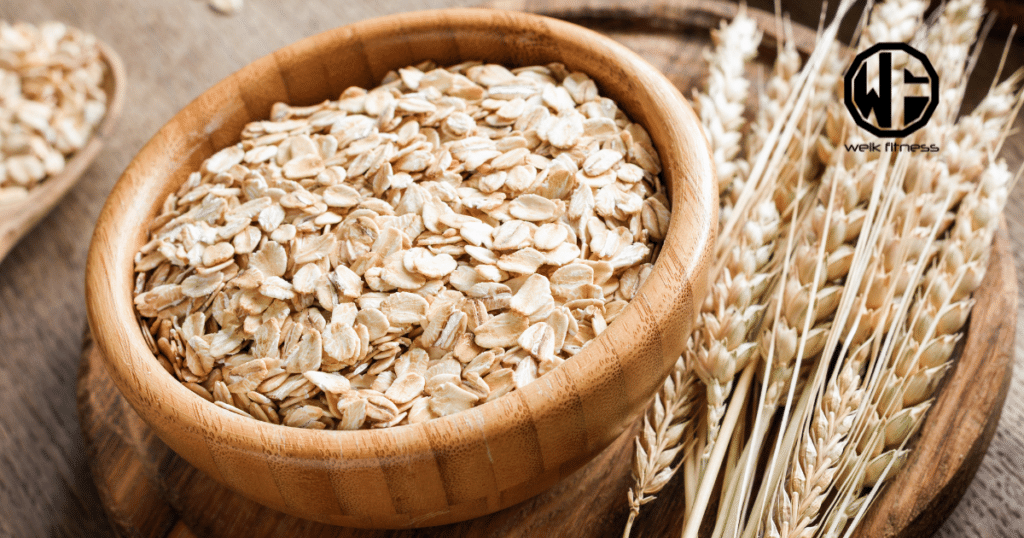Should You Eat MORE Resistant Starches in Your Diet?
Are you trying to lose weight? Have you tried just about everything in order to drop a few pounds — including eliminating or drastically reducing your carb intake? What if I told you that you can include carbohydrates and still be able to eliminate stubborn body fat? It’s true! You can help improve your weight loss efforts by consuming resistant starches.
To take things a step further, researchers have even determined that consuming resistant starches with your meals is important for improving your health.
In this article, we will look at what resistant starches are, the specific sources of food you should consider, and some of the benefits associated with this particular type of carbohydrate.
Let’s get started!
Disclaimer: This article is for informational purposes only and is not meant to treat or diagnose any condition. It is recommended that you speak with your doctor before starting any exercise program, changing your daily nutrition, or adding any supplements to your regimen.
Table of contents

What Are Resistant Starches?
Carbohydrates tend to have a bad reputation as people blame this macronutrient as the reason why they gain weight. While consuming excess carbohydrates and putting yourself into a caloric surplus can cause you to put on body fat, you shouldn’t lump all carbohydrates under one umbrella and deem them all “bad.”
Related Article: Carbs 101 — The Many Benefits of Carbohydrates
So, what exactly are resistant starches? These are very specific types of carbohydrates that are able to bypass the stomach and small intestine without being digested and then make their way to the large intestine, where they ferment and help feed the good bacteria and boost immunity and health. Resistant starches can also help slow down the digestive process due to their prebiotic fiber content.
Unlike other starches that you would generally be told to limit in your diet for weight management purposes, resistant starches are lower in calories than regular starches and, therefore, rather than containing 4 calories per gram, they only contain 2.5 calories per gram.
There are four types of resistant starches — RS Type 1, RS Type 2, RS Type 3, and RS Type 4.
Related Article: Macros Matter — What Are Carbohydrates
According to WebMD, each type of resistant starch is defined as follows:
Type 1: These types of starches are found in partially milled seeds and grains, as well as in some dense starchy foods. This type of starch is stuck within fibrous cell walls. So, it’s not digested.
Type 2: These are found in starchy foods like raw bananas and potatoes. Type 2 starches are indigestible because they are compact, which makes it hard for digestive enzymes to break them down.
Type 3: This is the most resistant type of starch. Type 3 starches are found in foods that have been cooked and cooled, such as bread and cornflakes. The process of cooling turns some of the starches into resistant starches.
Type 4: This type of starch is man-made and is usually found in bread and cakes
What Are Some Resistance Starches to Consider?
- Oats
- Green Bananas
- Beans
- Brown Rice
- Potatoes
- Lentils
- Legumes
- Cornflakes
- Barley
- Milled Seeds
- Grains
The Benefits of Resistant Starches

There are many reasons why you would want to add resistant starches to your diet, stemming from the various health benefits to weight loss benefits. Below, you will find a list of benefits that may be the tipping point for you to start adding resistant starches to your plan and limiting your consumption of regular starches.
Utilizing resistant starches may help:
1. Improve Weight Loss
If you’re trying to lose weight, consider adding more resistant starches to your nutrition plan while reducing some normal starchy carbohydrate sources. Research has found that those who consume resistant starches during meals can actually increase fat-burning by as much as 30%.
Related Article: Discovering Cassava Flour — A Nutritious Gluten-Free Alternative
Being that resistant starches contain fewer calories than regular starches, they can help you consume fewer calories per meal, which can help prevent overeating.
Taking things even further, regular consumption of resistant starches has been shown to help minimize abdominal fat.
Regardless of whether you are trying to burn off body fat or put on lean muscle mass, the ability to help reduce fat stores, especially abdominal fat, is beneficial for everyone.
2. Reduce Hunger
Resistant starches help slow down digestion in a similar manner as fat and fiber. One benefit of slowing digestion is that meals sit in your system longer, which helps you feel full and satiated longer. Additionally, research has uncovered that regular consumption of resistant starches was found to be able to reduce hunger hormones. By reducing hunger hormones, such as ghrelin, you can better manage your food intake and cravings.
Related Article: Is Tapioca Something That Can Improve Your Health?
Another study showed that eating meals that contain resistant starches can help reduce the overall number of calories consumed.
3. Manage Blood Sugar Levels
Your body releases insulin to help control blood sugar levels following meals. When consuming meals high in carbohydrates, there tends to be a massive dump of insulin into the system due to the carbohydrates being turned into glucose and causing blood sugar levels to shoot into orbit. If you reduce regular starches in your meals and replace them with resistant starches, you could experience better insulin sensitivity and lower fasting glucose levels.

Researchers have also found that following meals containing resistant starches, blood sugar levels remain at a low level compared to a significant increase when consuming meals with regular starches. There’s also something called the Blood Type Diet that you may find interesting.
4. Enhance Gut Health and Immunity
This benefit is a 2-for-1 as resistant starches can enhance your gut health, which in turn helps support a healthy immune system.
Related Article: Too Much Exercise Can Cause Gut Problems
When it comes to health, not many people realize that their gut plays a significant role in boosting immunity and protecting your body from harmful bacteria and pathogens. Your gut contains healthy bacteria that attack and destroy foreign pathogens that get into the system and can do harm.
Resistant starches can also help feed and support the good bacteria in your gut and improve the health of the entire gut microbiome.


*Disclosure: This article may contain affiliate links or ads, which means we earn a small commission at no extra cost to you if you make a purchase through these links. These commissions help support the operation and maintenance of our website, allowing us to continue producing free valuable content. Your support is genuinely appreciated, whether you choose to use our links or not. Thank you for being a part of our community and enjoying our content.
PLEASE CONSIDER SHARING THIS ON YOUR SOCIAL MEDIA TO HELP OTHERS LEARN MORE ABOUT THIS TOPIC.





